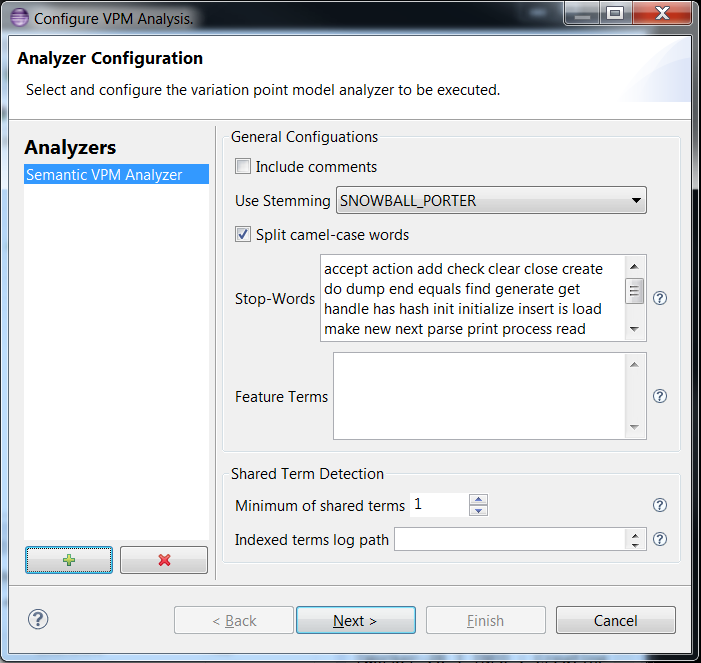-
Notifications
You must be signed in to change notification settings - Fork 1
Shared Terms Variability Analysis
The Shared Term Analyzer is able to find Variation Points with similar terms used at. For example, if a developer has introduced a new feature named "foo" and crated a method "doFoo()" at one location and a field "int myFoo = 1" at another location, the analyzer will be able to relate those two with each other. The analyzer is technology independent. However, extracting the terms to analyze is technology-specific and an according extension for Java source code is provided as part of the JaMoPP technology cartridge.
The results returned by the analyzer represent hints about variation points related in terms of content. Depending on the particular term shared by two variation points, the relationship is due to a common feature or generic and can be ignored (e.g. the term "foo" used everywhere around).
As shown in the analysis wizard, the analyzer provides several configurations to influence the analysis:

The configuration most reasonable to be adapted to a specific consolidation context are the stop words and the featured terms.
- Stop-Words are filtered before the analysis. The default configuration contains terms from the Java programming-language typically providing no contextual information, such as "get" or "set". You can add further terms from your context and coding conventions.
- Feature Terms are treated with care during the analysis. For example, composite terms such as "use case" might be used in different styles the source code (e.g., "UseCase", "use_case", or "us.case"). Those varying terms will still be related to each other if defined as "feature terms". If you already got an idea about features implemented in a specific copy, define them as feature terms (lower case without spaces).
You can also turn on a logging of the detected terms by providing a path to a directory to write the log to.
All other configurations are more specific to natural language processing and as long as you are not interested in specific aspects of such analyses you can ignore those settings.
Contact
KoPL Project
http://www.kopl-project.org
Project Lead: DevBoost GmbH
-
User Guide
-
Demonstrations
-
- Getting Started
- Recommended Tools
- Coding Conventions
- Architecture
- Variation Point Model
- UI
- Quality Assurance (QS)